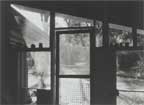California FarmLink nurtures next generation of farmers
 Bruce Manildi's grandfather started his truck farm in 1905 on 36 acres a few miles up winding Glen Haven Road, traveling by horse-drawn wagon to Santa Cruz to hawk the vegetables he grew.
Bruce Manildi's grandfather started his truck farm in 1905 on 36 acres a few miles up winding Glen Haven Road, traveling by horse-drawn wagon to Santa Cruz to hawk the vegetables he grew.Manildi's father planted the fruit trees -- plums, pears, apricots, cherries, but mostly apples. More recently, in the face of competition from Chinese apples, Manildi put in vineyards of pinot noir and syrah grapes.
After 105 years and three generations, the family farm is still in the family. But Manildi's seven children work at places like Hewlett-Packard. Not a one is a farmer, and at 70 Manildi's begun to think about the future of the rare piece of flat land set on a mountainside above Soquel.
Johnny Wilson's a surfer from Pleasure Point. An environmentalist, he says he went through a screaming-in-the-streets phase. These days the 30-year-old is looking to make the world a little better through organic farming. He also wants to make a decent living, enough to support a family some day. But for the graduate of UC Santa Cruz's Farm and Garden Program, finding affordable land is a huge hurdle.
Enter California FarmLink, a nonprofit that connects ready to retire farmers with aspiring young growers. FarmLink brought Manildi and Wilson together last year for what looks like a successful collaboration that is helping Manildi answer the question about the fate of the family farm and giving Wilson the space to grow as a farmer.
"For people like me to have people like Bruce is indispensable," Wilson said.
GENERATIONAL SHIFT
At a time when farmers 65 and older are the fastest growing demographic in agriculture, FarmLink might be said to be indispensable, too.
According to a 2007 U.S. Department of Agriculture census, the most recent figures available, one in four farmers is 65 or older, a 22 percent increase over 2002 figures. The percentage younger than 45 dropped 14 percent during the same period to comprise just 22 percent of American farmers.
The average age of Santa Cruz County growers in 2007 was 57.8, slightly over the national average of 57.1.
FarmLink says in California, farmers 65 and older outnumber those younger than 35 by 8 to 1.
The nonprofit seeks to reverse the trend and ensure the future of family farming.
Industrial agriculture has its place, said Reggie Knox, Central and South Coast program director for FarmLink.
But preserving small family farms is crucial to supplying communities with locally grown, less processed, nutritious food.
FarmLink works to accomplish that goal by helping the next generation of farmers gain access to capital, access to land, access to the knowledge base of agricultural veterans before it's too late, Knox said.
"We can have high quality food or we can go all the way to Chile or South Africa or China for our food," he said.
 MANILDI'S VISION
MANILDI'S VISIONManildi stood on a rise with a view of his orchards and vineyards early Thursday afternoon. The sun was out, but a touch of fog nestled among tall trees to the west of his property. He wore a wide-brimmed straw hat and hooked his hands into the bib of white overalls while he talked.
He said when his grandfather died in his 40s, the property was split among his widow and several children. Manildi's father, the eldest, wanted to keep the farm whole, and was able to purchase several of the shares, but a couple of brothers held out. Manildi bought the farm when his father was in his 80s and thinking about selling out and moving to the city. He also acquired the last two shares from his uncles.
But Manildi earned his living in the field of electronics at Seagate. Farming's been more about passion than profit. He sells his grapes to local wineries and said if it weren't for Martinelli's, the Watsonville juice company that buys his apples, the fruit trees would be gone. He said he can't think about retiring if he wants to keep the place. Expenses are too high. Taxes and insurance alone run $25,000 a year.
"We put more money into this place then we get out of it," he said.
Manildi could sell out and enjoy a comfortable retirement. He said the property is worth $3 million. But he clearly doesn't want to do that. He'd like to see the place farmed forever. He said maybe with his help Wilson will be successful and buy him out, or at least take over management of the farm someday.
Knox, of FarmLink, talks about strategies such as conservation easements that could generate income for Manildi while reducing the value of the land, making it more possible for someone like Wilson to buy. Manildi said maybe he'll set up a foundation to keep the land in farming.
"To see someone build a couple of McMansions would be a real shame," Manildi said.
FOGLINE FARM
Wilson has a business plan that has more in common with Manildi's grandfather's operation than Manildi's, bringing the farm full circle.
He said in his activist days, he grew concerned about the environmental problems caused by industrial farming, and he wants to nurture a different model that will not only be easier on the land, but more closely connect people to the food they eat.
He plans to grow a variety of organic vegetables and fruits and raise chickens, turkeys and pigs on his Fogline Farm. He'll pasture the poultry, rather than cooping them up, to produce high-quality meat and eggs and fertilize the soil.
He'll sell direct to the consumer through farm memberships that will entitle people to weekly baskets of fresh produce and meat. In his first year, Wilson farmed about an acre and a half of Manildi's land. This year, he's doubling that. He also has plans for a farm stand and wants to get his customers on the land to see how their food is grown.
"A direct connection to the consumer is what's really going to keep farmers like me farming," he said.
Wilson didn't make a profit in his first year, but he's hopeful that will change as he builds a customer base.
"It's getting the word out there and by trial and error seeing what makes us money and what doesn't," he said.
MUTUAL BENEFIT
Wilson's a bit shorter and leaner than Manildi. Where the older farmer squints against the sun, Wilson sports shades, along with a knit beanie and a plaid shirt. He grinned as Manildi ribbed him about his surfing, implying he's not a serious farmer.
He's grateful to Manildi for giving him the opportunity to farm, but the older farmer's doing more than providing Wilson with a plot of land. He uses Manildi's tractor and other equipment, which reduced the amount of start-up capital he needed. And Wilson is tapping into Manildi's expertise to grow as a farmer.
Suburban-bred Wilson said from his roots on the UCSC Farm -- a program he called "a golden resource for the community" -- he deepened his experience working on farms in Latin America and New York. But Manildi is teaching him things that are second nature to someone who grew up on a family farm. Trade skills like welding, for instance, that are essential to a small farmer who can't afford to run to a repair shop every time something breaks down.
"What Bruce provides is somebody with a lot of experience," Wilson said.
Asked about the lease arrangement, Manildi laughed, and said last year "he got two chickens and some vegetables," but eventually both parties would like to see a more lucrative arrangement.
Manildi said he likes helping people, mentoring people. It's something he did as a board member of the Homeless Garden Project and at Seagate, he said.
But then Manildi tells of the day when Wilson's pig escaped her pen, and it's obvious he's gaining something from their partnership beyond the rewards of business and altruism.
The sow was in heat, he said, probably looking for a mate. He said she followed him around like a dog. He mentions he once headed up the 4-H swine project.
"I'm having a hell of a lot of fun," Manildi said.
More photos, info and links at the Sentinel.






























0 Comments:
Post a Comment
<< Home